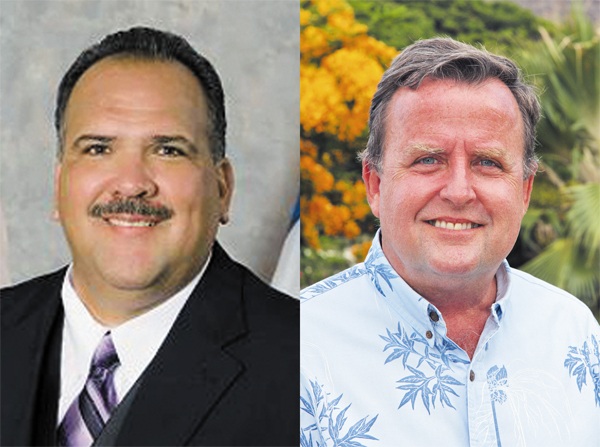LIHUE — Some council members have major concerns with the mayor’s proposed fiscal year 2015 county budget. They see the $180 million finance plan as a trend in the wrong direction. Namely, too much spending. If county budgets continue to
LIHUE — Some council members have major concerns with the mayor’s proposed fiscal year 2015 county budget.
They see the $180 million finance plan as a trend in the wrong direction.
Namely, too much spending.
If county budgets continue to grow — this year’s is $4.6 million bigger than the current year’s — the county will be forced to raise property taxes to pay for it, they said.
“I don’t know how we’re going to get out of this without some very strong, decisive leadership and a plan, quite frankly,” Councilman Gary Hooser said Friday when the seven-member committee addressed the mayor’s proposed budget for the first time on the onset of three weeks’ worth of county budget workshop meetings. “When many businesses make this kind of mistake, they figure they’re going to grow their way out of it and sell more and pay everything, but I can’t imagine how we’re going to grow out of this without continuing to raise property taxes.
Around $4 million of the $4.6 million increase in the spending plan is allocated for employee raises, spread among the county’s 1,200 workers.
The raises have been agreed to through several collective bargaining groups. Hooser said the trend of increasing the budget will catch up to county.
He said the last five budgets have been unsustainable and the proposal for next year is the same. The Department of Finance, he suggested, should consider creating more long-range budget forecasts to help guide the County Council’s decisions.
“I can understand if it’s a unique situation or a one-time kind of thing, but I don’t see anything to show the contrary — we’re just going to go deeper into the hole, next year we’re going to be asked for the same thing, so next year we’ll just have to raise more taxes … and I don’t see that as an acceptable option.”
But the $180 million budget proposal before the County Council, Kauai Mayor Bernard Carvalho Jr. said, does four simple things.
It calls for more spending in areas where it’s necessary; reduces spending in areas that have moved toward cuts and leverages all possible resources; asks for additional revenues in targeted areas; and creates opportunities for saving now and in the future, Carvalho explained.
“To deliver the service that the public expects and deserves, we must have a well-trained workforce and our workforce must have the proper tools to get the job done,” Carvalho said. “As costs increase, we must find ways to save money at every opportunity while also looking at how we can increase our revenues without overly burdening our taxpayers. It feels like an impossible task, but it just has to be done. — we’ve got to work it out, we’ve got to find a way.”
Carvalho and his cabinet presented their proposals to the County Council Friday. Now, the council will go over each department’s needs and requests over the next three weeks as they outline the 2015 fiscal year.
Council Chair Jay Furfaro said the give-and-take will take a lot of teamwork.
“For us to get to a point, we have to be able to objectively discuss areas that we have different views on, but at the same time, but please, everyone, we will remain flexible in understanding what we jointly want to agree on and accomplish — I think that’s the key to a budget,” Furfaro said.
Councilman Mel Rapozo said he did not support the budget nearly three years ago, because he was concerned about the road that the county was on — a decision that he also made the following year when that year’s budget was proposed.
That changed last year when the administration made some improvements, he said.
But one area that must be looked at is employee benefits, he said, which accounts for a majority of the county’s budget.
“I agree that it’s going to be hard to get out of this hole, but we’re not alone — it’s every town and every state,” Rapozo said. “This year, I’m hoping I can get to a place at the end of the budget where I can support it, but I will be looking for those reduction on how we can create a sustainable budget.”
The key, he opined, is prioritizing what services are needed and trimming those that are not necessary.
“I want to have a swimming pool in my yard, but I can’t afford it,” Rapozo said. “Even if someone gave me the swimming pool, I couldn’t afford the maintenance, so I can’t have a swimming pool. I think that’s the mentality that we need to have.”


